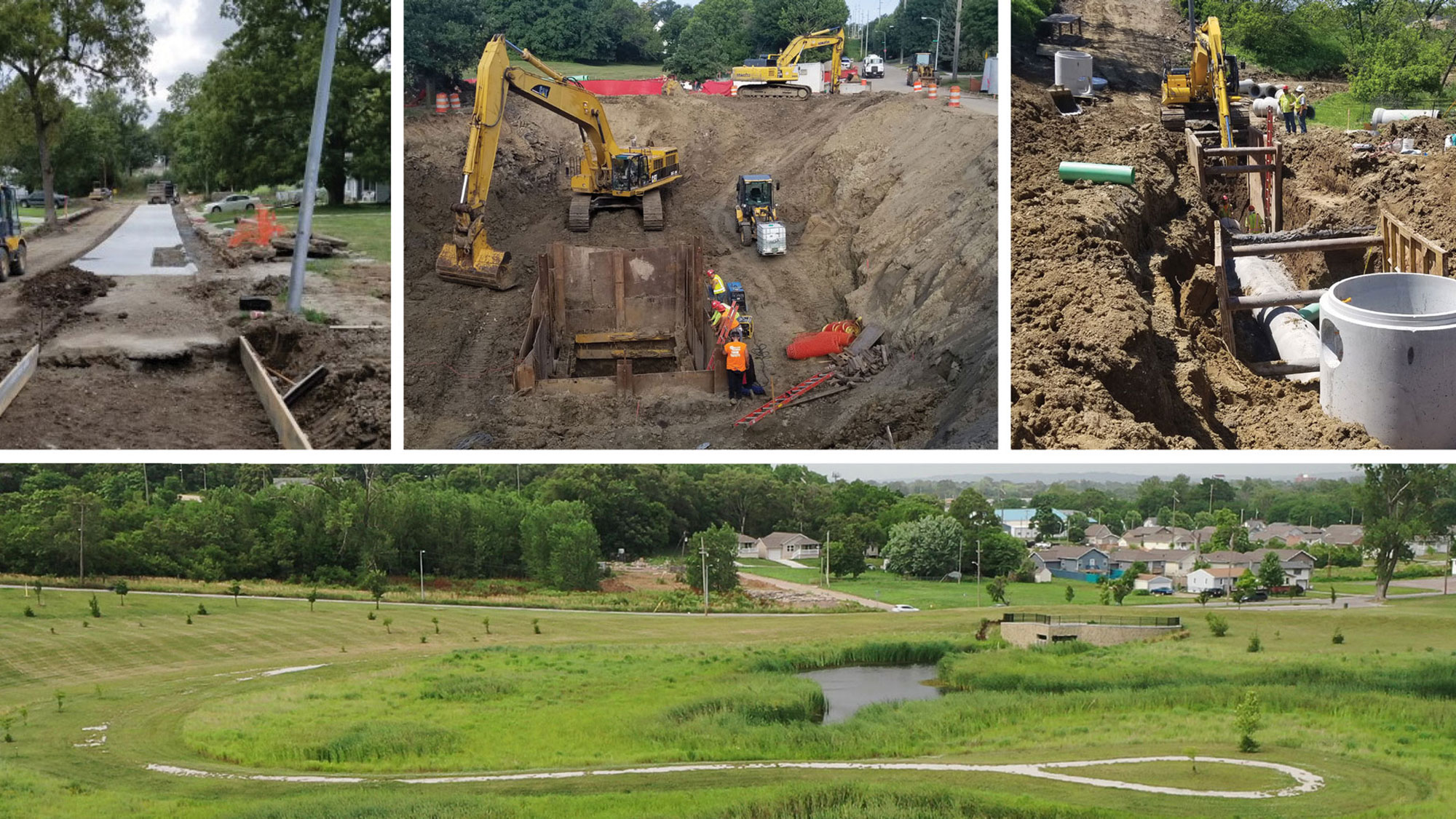Omaha CSO
Skip to content
Long Term Control Plan Development and Implementation
The goal of the City’s CSO Program is to reduce overflows from combined sewer outfalls and improve water quality in the Missouri River and Papillion Creek. The Long Term Control Plan (LTCP) lists the projects that will achieve this goal. Under an agreement with the State of Nebraska, Omaha is committed to implementing the LTCP by October 2037.
The requirement to address CSOs is based on the Clean Water Act, and more specifically the EPA CSO Control Policy of 1994. Requirements are implemented through the City's Consent Order and CSO Permits from the Nebraska Department of Environment and Energy (NDEE).
Long Term Control Plan
Beginning in 2006, the original LTCP was developed and submitted to NDEE in 2009. During that time, more than 140 community volunteers served on basin and community advisory panels to develop criteria to help determine the best, most cost-effective solutions.
The City evaluated various alternatives for areas of the City with CSOs and identified controls that would meet regulatory requirements, were cost effective and beneficial to the community. Implementation of the LTCP began in 2009 and continued until 2011 It when it was impacted by the Missouri River flooding. As a result of flooding, the City received an amendment to the Consent Order which extended the LTCP completion date from October 2024 to October 2027.
UPdates to the plan
- 2014 – An LTCP Update was submitted to NDEE in 2014, following an effort to re-evaluate CSO controls. This included consideration of alternative technologies, compliance strategies and systemwide controls. The update also focused on ratepayer savings and a revised schedule that optimized the additional three years for implementation.
- 2018 – In 2018, the City worked with NDEE to again amend the Consent Order in order to obtain additional time for implementation. This order changed the LTCP completion date from 2027 to 2037 and clarified that the required level of control be at least 85% capture of wet weather volume. The order also included a requirement to submit an updated LTCP by March 1, 2020. As a result of Missouri River flooding in 2019, this date was subsequently changed to March 31, 2021.
- 2021 – The 2021 LTCP Update includes significant changes in controls including removal of the Deep Tunnel System from the LTCP and the inclusion of more cost-effective controls. Because of a Technical Assessment for Cost Savings (TACS) evaluation Optimization Evaluation overall anticipated costs have been significantly reduced. The 2021 LTCP Update was approved by the Nebraska Department of Environment and Energy (NDEE) in August 2021. The Project Delivery Schedule for Active Projects is consistent with the approved LTCP Update and reflects the 10-year extension (included in an Amendment to the City's Consent Order with NDEE) for CSO Program completion. A new CSO permit has yet to be issued.
The 2021 LTCP Update provides a current estimated cost of the overall Program of $2 billion. This including contingencies and accounts for inflation through completion in 2037. Today, estimated Program costs are lower than what was originally projected. Visit the 2021 LTCP Virtual Public Meeting to learn more.
Additional Resources
- NPDES Permit – January 2024
- 2021 Long Term Control Plan Update Virtual Public Meeting – March 2022
- 2021 Long Term Control Plan Update – March 2021
- Amended NDEE Consent Order – Oct. 2019
- Amended NPDES Discharge Permit – Oct. 2019
- 2014 FINAL Update to the Long Term Control Plan (with Appendices) – Oct. 2014
- 2009 Long Term Control Plan Executive Summary – Oct. 2009
- Wet Weather Water Quality Act of 2000 – Oct. 2000
- U.S. EPA Combined Sewer Overflows Guidance for Long-Term Control Plan – Sept. 1995
- Clean Water Act of 1972
Community advisory panel recommended criteria
- Reduction of combined sewer backups into basements and existing odors
- Water quality improvements
- Minimizing community disruption during construction
- Opportunities for additional infrastructure/utility improvements
- Opportunities for community enhancements with other funding sources
- Compatibility with community
- Reduction of street flooding
- Simplicity of solutions (operations, maintenance and reliability)

